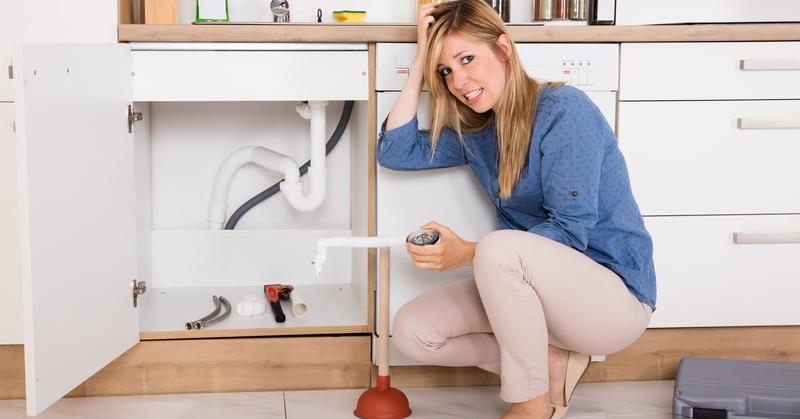The kitchen is one of the most important areas of your home. It is where your family prepares food and makes memories together. Therefore, it should be properly maintained and hygienic.
However, some homeowners encounter issues that make their kitchen unattractive or unhealthy to use. These problems can be easily resolved with a few DIY tips and tricks.
Not Enough Light
Often kitchens have poor lighting, which not only makes the space feel cold and uninviting but also reduces visibility and can even be dangerous. It’s a design problem that can be easily resolved by including extra lighting in corners and adding spotlights to cabinets.
Natural light is thought to make us happier and more productive, so it’s no surprise that homeowners love the idea of more natural light in their kitchens. Paint your walls white to maximize light reflectance – it’s the most effective solution.
Clogged and smelly sinks are another common kitchen problem. Try pouring a cup of baking soda and lemon juice into the sink to clear a blocked drain. If it’s still a problem, call in a tradie to investigate the issue further. Stinky freezers are another common problem that can be avoided by regularly cleaning the appliance and ensuring it has adequate air circulation. A warm fridge or freezer could be the sign of a pipe issue, so it’s important to consult with an expert.
If you’d like more information on plumbing services please visit Inner City Plumbing.
Poor Ventilation
The kitchen needs proper ventilation to prevent odors, smoke and moisture buildup. Without adequate ventilation, these contaminants can lead to health problems like respiratory issues or allergies. Moreover, they can damage the kitchen materials like cabinets and walls.
One of the most common kitchen problems is a smelly sink that can be cured by pouring lemon juice and baking soda down the drain once or twice a week. This simple trick is effective because clogged sinks usually occur due to dirty water that rots in the pipes.
Another problem in the kitchen is cluttered counters and surfaces. This issue can be prevented by using full-height overhead cabinets to maximize storage space. You should also consider storing less frequently used items on the highest shelves. This way, you will free up more countertop space for cooking and cleaning. Additionally, stains from food and cooking sprays can be avoided by regularly wiping down the surface with a damp cloth.
Dirty Dishwasher
The dishwasher is one of the most important kitchen appliances, but it can be a headache if it’s dirty. It can leave streaks and spots on your dishes, even if you use
the right detergent and load them properly. It can also cause blockages due to food residue build-up.
Foul odors in the sink are a common problem in many homes, but they’re easily fixed by pouring a cup of baking soda with lemon juice into the drain and running the heavy duty or hot water cycle (whichever sounds more “heavy”). Rusty cabinet hinges can be solved by rubbing them with lubricant.
Most modular kitchens have proper ducts or exhausts that help to remove airborne byproducts of cooking, such as smoke, fume, and grease. However, homeowners should also look into ensuring that there is sufficient ventilation in the rest of the kitchen to avoid overheating and humidity problems. Additionally, they should regularly clean and sanitize their kitchen to keep it safe for themselves and their family members.
Cracked Tiles
Cracked tiles in the kitchen are common due to rough use and the impact of heavy furniture. They may also be unsightly and allow germs to hide in the crevices.
The best solution is to buy a good quality, strong-holding epoxy that is formulated for stone and tile. You should find one that is easy to mix (it is often a 2-part product that you squeeze or pour out and then mix together to activate). Before you apply the epoxy, make sure you vacuum and clean the area and scrub any grout around the crack, using rubbing alcohol.
In most cases, cracks in the kitchen are caused by something like dropping a heavy pot or pan and they generally appear on the periphery of the affected tile rather than the center. While preventing impact-related cracks is difficult, you can try to avoid them by being cautious when carrying heavy items in the kitchen and by moving heavier objects away from walls and countertops.
To find a professional plumber for things like blocked drain(s) in Melbourne, go online and look for a reputable company. Common kitchen plumbing problems are not to be left to do it yourself. They are serious and need professional attention.
